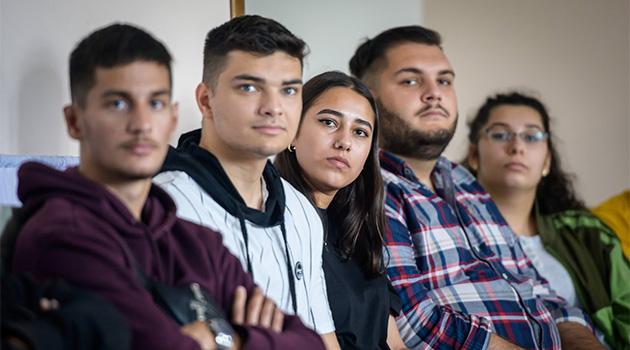Czech poll finds 32 % of respondents say their coexistence with Romani people is good, the best result since 1997

Coexistence between non-Romani and Romani people in the Czech Republic is perceived by 32 % of respondents as good, while 63 % perceive it as poor, according to a poll conducted this spring by the Center for Public Opinion Research (Centrum pro výzkum veřejného mínění - CVVM). This is the lowest assessment of negative relations since 1997, when the CVVM began following the opinion of the public on this matter.
The historical maximum for negative relations happened in 2013, when coexistence between the non-Romani and Romani populations was considered poor by 87 % of respondents and as good by just 9 %. According to analysts, this recent result has confirmed a trend of recent years.
“A rising trend has been confirmed from the last few years, where from a decline of positive perceptions to their historic minimum (and a maximum of negative perceptions) in 2013, the assessment of such coexistence has currently reached the lowest negative assessments (and the highest positive ones) ever since 1997,” the authors of the poll said. “It has to be said that our investigation does not include the excluded localities, so the respondents are, with few exceptions, from the majority population.”

Source: Center for Public Opinion Research at the Institute of Sociology at the Academy of Sciences of the Czech Republic,
“Our Society”, 27 March – 22 May 2023, 834 respondents age 15 and older, personal interviews.
Since 2015, assessments that are negative have been reduced by 20 %, and compared to the most recent survey in 2019 they have declined by 9 %. The authors of the poll believe that overall, the stereotypical view of the Romani population has weakened.

SOURCE: Center for Public Opinion Research at the Institute of Sociology at the Academy of Sciences of the Czech Republic, “Our Society”
“From the data we have collected, we are unable to determine to what degree the COVID-19 period, the war on Ukraine with the influx of migrants from Ukraine, the growth in the cost of energy and other items, or any other problems have apparently moved the issue of Romani people out of the focus of the public,” the sociologists said. Two-fifths of respondents said they consider the Government’s solutions for the issue of Romani people satisfactory, and a similar proportion of respondents are not satisfied with the approach taken by the Government.
Local administrations are assessed as doing a better job by the public in that respect – 41 % of people perceive their solutions to the issue of Romani people positively, while 26 % are dissatisfied with them. Compared to the situation of other inhabitants, half of the public perceives that Romani people have worse opportunities to be employed.
Roughly two-fifths of respondents said they believe Romani people enjoy worse opportunities for applying themselves in civic and public life; 42 % of respondents said they consider Romani people’s situation to be comparable with others in that regard, while one-seventh believe Romani people are better off than non-Roma in that regard. As far as accessing housing goes, 31 % of respondents said Romani people are in a situation that is worse, but a slightly higher proportion (35 %) of respondents believe Romani people have better opportunities in that regard than the majority population.

Source: Center for Public Opinion Research at the Institute of Sociology at the Academy of Sciences of the Czech Republic,
“Our Society”, 27 March – 22 May 2023, 834 respondents age 15 and older, personal interviews.
“The poll this year ascertained a shift compared to 2019 for most of the items investigated, in that responses that opportunities are ‘worse’ for Roma increased in their representation. These items indirectly concern their labor market position (education, qualifications) and their civic life position. In these, there was an increase in assessing these negatively (i.e., conditions for Roma are worse) of between three and seven percentage points,” the authors of the research say.
For other items such as housing, defending their interests, and personal security, while there was also a growth in assessments that were negative to a similar extent, the main shift, according to the researchers, had to do with the significant reduction to assessments that were positive (“Roma are better off”). “That is what led us to conclude that Romani stereotypes are weakening. In the case of the items which are linked to education and qualifications, this is rather an assessment of inclusion in schools and the labor market situation (competition from Ukrainians) that is realistic,” the authors of the research state.